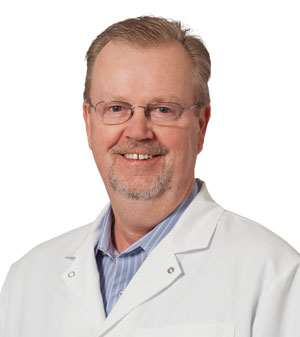By Laura Thill
How can DSOs deliver the best care possible?
Without proper attention and care, a sick or damaged tooth or periodontal disease will not get better. As clinicians know too well, it likely will worsen, necessitating more extensive treatment.

Patients miss dental appointments for a number of reasons, according to John Barnes, DDS, government affairs clinical chair, Pacific Dental Services (PDS). “The obstacles limiting access to dental care include cost of care, patients’ lack of perceived need and possibly limited oral health care resources in some rural areas,” he explains. “Many patients are episodic patients, meaning they seek care when they have a problem and don’t understand the value of preventive care on a continuing basis. When a problem does arise, however, it is typically expensive to resolve.”
Indeed, without the necessary treatment, the patient’s condition will continue to deteriorate, Barnes continues. “A fractured tooth that may have been able to be saved with a filling or crown will advance and require root canal therapy or perhaps even extraction,” he says. “Untreated gum disease can advance into tooth loss and, more importantly, adversely affect the patient’s overall systemic health. It is becoming more evident that periodontal disease is related to several chronic medical conditions, including heart disease, diabetes, dementia, stroke and cancer.”
Connecting with patients
 Most patients find a local dentist by searching the Internet or acting on a referral by a family member or a friend, notes Barnes. Sometimes, however, in extreme situations, they find themselves in the emergency room or at an urgent care center. “Many PDS-supported offices have developed relationships with nearby ER’s and urgent care centers and do receive referrals from them,” he says. In other cases, dental team members either know of someone in need, or the dental practice works with local organizations to identity hard-to-reach patients, he points out. “Some examples of these organizations include Genesis Women’s Shelter in Dallas, Texas; Dress for Success in Houston, Texas; Mission of Mercy in Phoenix, Arizona and countless others around the country,” he says.
Most patients find a local dentist by searching the Internet or acting on a referral by a family member or a friend, notes Barnes. Sometimes, however, in extreme situations, they find themselves in the emergency room or at an urgent care center. “Many PDS-supported offices have developed relationships with nearby ER’s and urgent care centers and do receive referrals from them,” he says. In other cases, dental team members either know of someone in need, or the dental practice works with local organizations to identity hard-to-reach patients, he points out. “Some examples of these organizations include Genesis Women’s Shelter in Dallas, Texas; Dress for Success in Houston, Texas; Mission of Mercy in Phoenix, Arizona and countless others around the country,” he says.
Caring for patients with limited access
Barnes believes there is a much more defined culture of giving back today, compared to the past. “Whether it is an individual dentist, a dental practice team member or a large DSO such as Pacific Dental Services, I see more giving to those in need than ever before,” he says. “It feels good; it is satisfying and gives an important sense of purpose to those serving others.”
For instance, the Pacific Dental Services® Foundation typically partners with local PDS-supported practices to serve patients with limited access to care. “We provide care in several ways,” Barnes explains. “The individual-supported office may treat these patients free of charge throughout the year, as determined by the practice owner. Also, each year, on a given Saturday in August, most PDS-supported practices participate in Smile Generation® Serve Day. They identify patients in need and provide them with free dental services. This has resulted in millions of dollars of free dentistry performed across the country.
“The Pacific Dental Services Foundation also funds and equips a mobile dental clinic – a mobile, two-operatory equipped RV with PDS-supported dentists and team members who volunteer to serve these patients in need,” he adds.
Barnes anticipates that more underserved patients will receive necessary treatment in years to come, particularly with the emergence of mid-level dental providers. Similar to physician assistants and nurse practitioners in the medical profession, mid-level dental providers will be able to provide limited services under the supervision of a dentist, notably expanding access to care, he explains. For the present time, lawmakers, dental boards, organized dental associations and dentists continue to debate the logistics and value of such programs. But, as attention to underserved populations continues to grow, the industry is certain to reach this point in the not-too-distant future, he notes.

